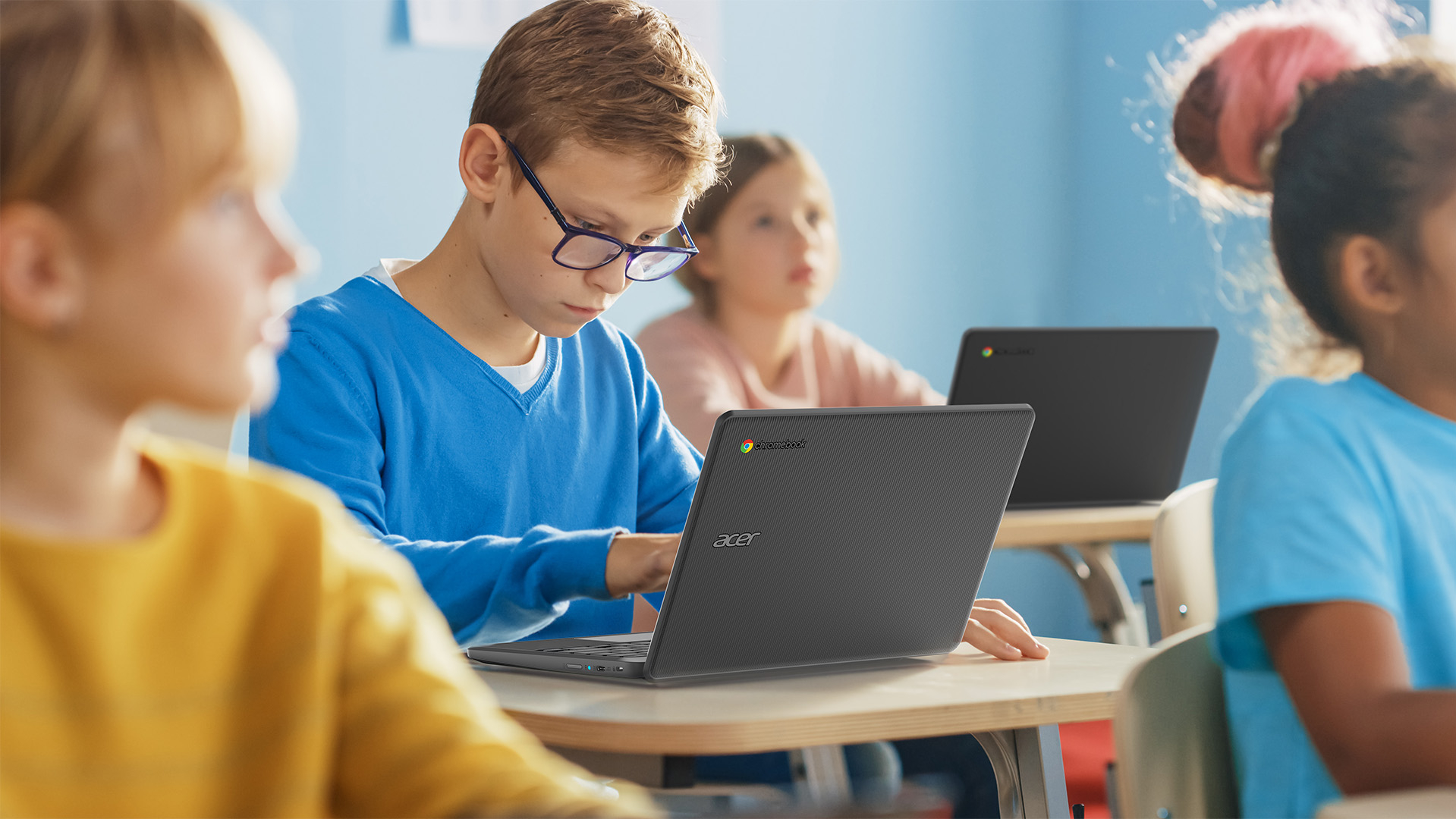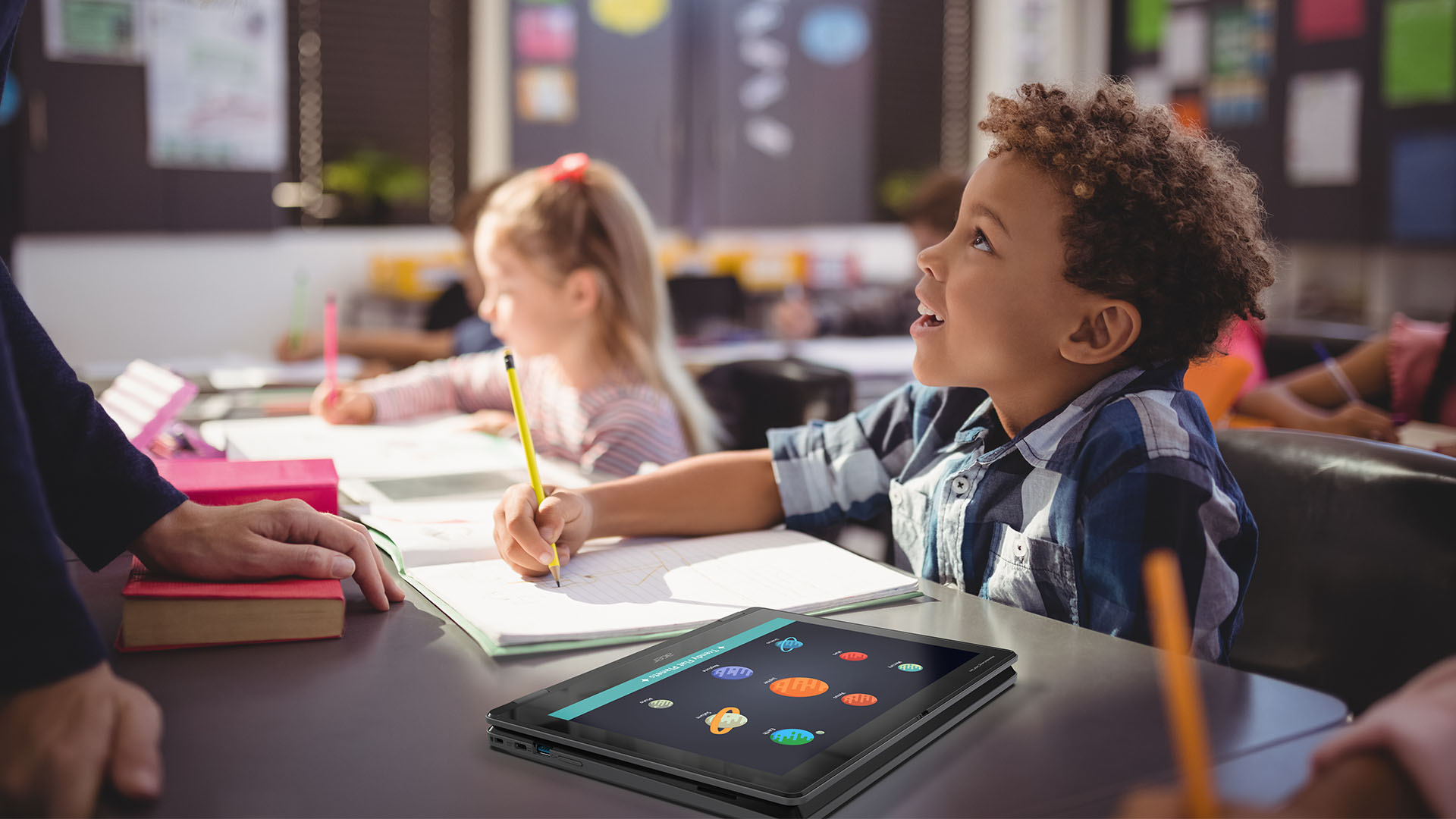
Kids being walking germ-spreaders is enough of a problem at the best of times, let alone during a global pandemic. Classrooms have become major sticking points for governments aiming to limit the spread of Covid-19, but Acer has done its best to alleviate some of those concerns with the arrival of its new Chromebooks for education.
Five new models are entering schools in the next few months, and those with touch displays — dubbed "Spin" devices with near-360 degree hinges for flexibility — will be fronted by antimicrobial Gorilla Glass and come equipped with a bacteria-resistant coating for the keyboard, touchpad, and palm-rest surfaces.
Acer has made no bold claims regarding the effectiveness of the coating, but antimicrobial wipes, gels and surfaces are typically repellent against most common viruses, Covid-19 now being one of them.
In any case, the introduction of features to limit the spread of bacteria on its devices suggests Acer has recognised the concern of parents and governments alike as children return to school en masse for the new year.
- Best Chromebooks of 2021
- Acer’s Chromebook Spin 514 aims to revolutionize Chromebooks
- Top notebooks for the classroom
The company’s new Chromebooks for education will also come well-equipped to withstand the physical trials of classroom use.
While further spec details aren’t available as yet, Acer has confirmed all of its new education models have the MIL-STD-810H badge, meaning they can take falls of up to 4ft (1.2m) and downward impacts of up to 132lbs (60kg) of force. MIL-STD-810 is the documented standard of devices used by the U.S. military, with 'H' a revision introduced in 2019. The point being, Acer’s latest set of classroom Chromebooks are built to last.
They’ll also be ready for home use, too. Given that many children remain at home and are attending lessons via video link, spill-resistant keyboards and trackpads have been introduced, as well as reinforced brackets to keep chiclets (that’s elevated keyboard keys) on their chassis.
Get daily insight, inspiration and deals in your inbox
Sign up for breaking news, reviews, opinion, top tech deals, and more.
Affordable durability
Acer has also been mindful to keep its newly-reinforced fleet of classroom Chromebooks at accessible price points.
The most affordable option in the refreshed lineup is the 11.6-inch Chromebook 311 (C722), which comes equipped with a MediaTek MT8183 processor, HDR webcam, optional touch screen, and a 20-hour battery.
It will likely be the most popular option for many schools, and is more-than-capable of delivering competent usability and durability to children and teachers alike. The Chromebook 311 will hit North America first as soon as January, with no word yet on worldwide release, and will cost $299 (around £220, AU$390).

As you work your way up the model roster, prices tend to increase in increments of around $50. The TravelMate Spin B3 is an Intel Pentium Silver-equipped device set to cost $330 (£240, AU$430), while the Chromebook Spin 511 and 512 models — the former has a 16:9 aspect ratio 11.6-inch IPS display while the latter has a 3:2 aspect ratio 12-inch display — will cost upwards of $400 (£290, AU$520).
The most premium option in the lineup is the Chromebook 511 (C741L) with the Qualcomm Snapdragon 7c. The 11.6-inch clamshell laptop has a 20-hour battery, weighs just 2.9lbs (1.3kg) and will, again, cost north of $400 (around £290, AU$520).
Don’t expect Acer’s latest Chromebooks for education to rival its flagship devices when it comes to processing power, but in terms of classroom durability and limiting the spread of nasty bacteria, the company’s new lineup seems built to last.
- 5 free online classrooms to keep the kids e-learning
Via Android Police

Axel is TechRadar's UK-based Phones Editor, reporting on everything from the latest Apple developments to newest AI breakthroughs as part of the site's Mobile Computing vertical. Having previously written for publications including Esquire and FourFourTwo, Axel is well-versed in the applications of technology beyond the desktop, and his coverage extends from general reporting and analysis to in-depth interviews and opinion. Axel studied for a degree in English Literature at the University of Warwick before joining TechRadar in 2020, where he then earned an NCTJ qualification as part of the company’s inaugural digital training scheme.